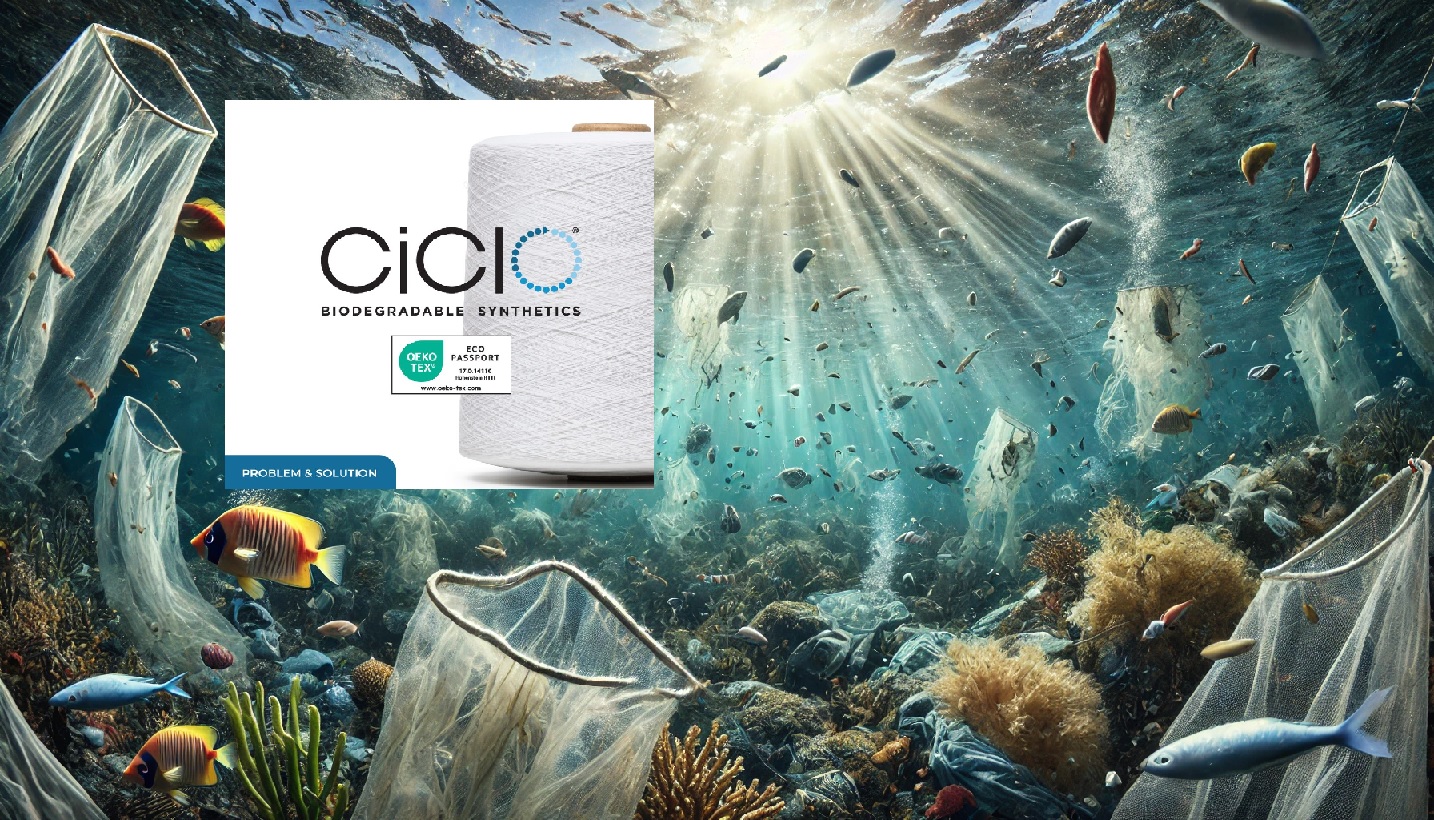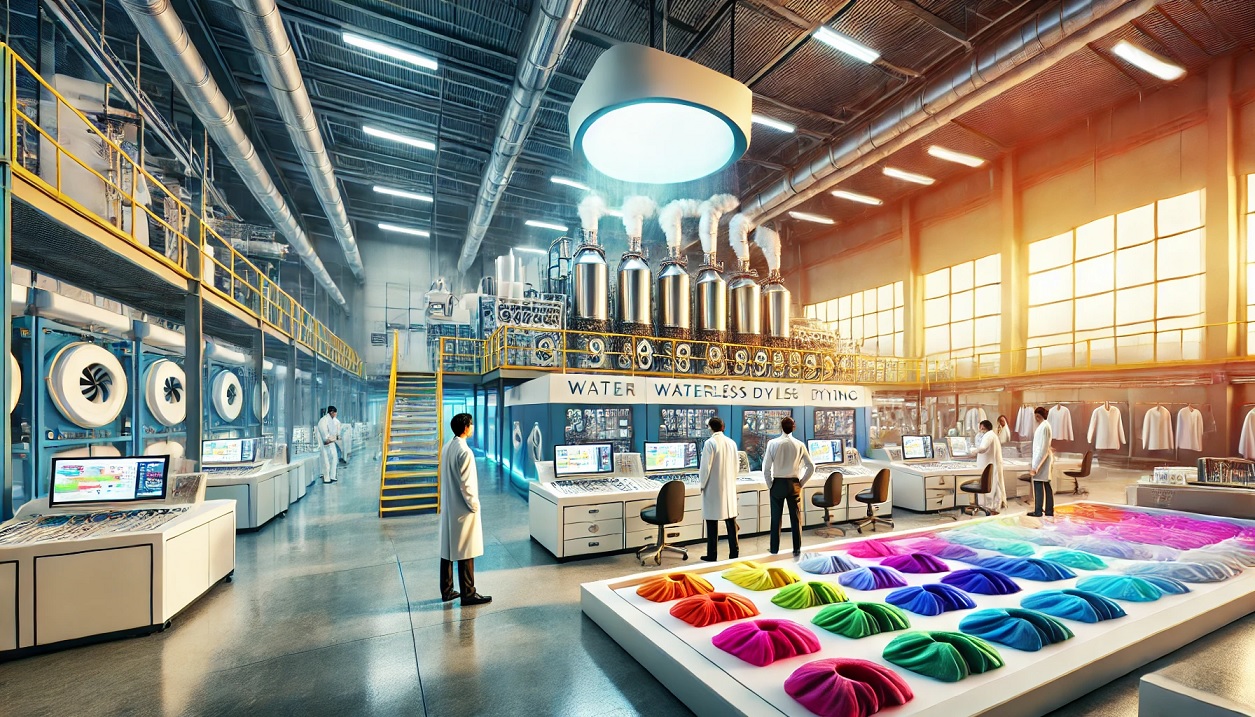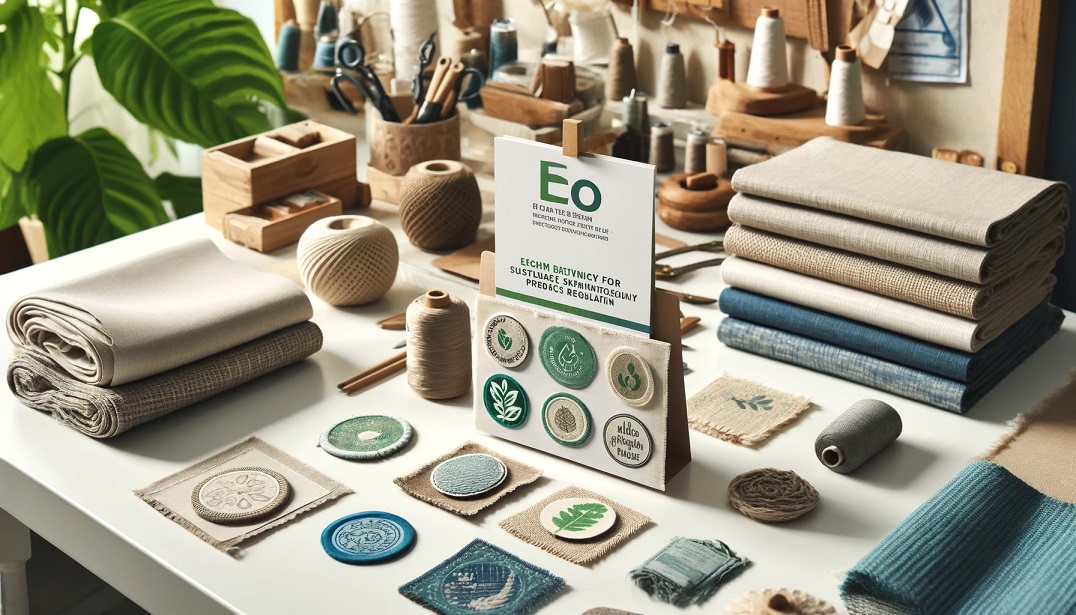Tackling Microplastic Problem with CICLO Technology
The fashion industry is at a breaking point. While synthetic fibers like polyester and nylon make up more than 60% of global textile production, they come with a heavy price—plastic pollution. Every time you wash synthetic clothes, microplastics are shed, polluting our oceans. Even worse, when these textiles reach landfills, they can take centuries to break down. As eco-conscious consumers grow increasingly frustrated with the environmental costs of fast fashion, the industry is under intense pressure to find sustainable solutions. Enter CICLO technology, a groundbreaking innovation that makes synthetic fibers like polyester biodegradable. CICLO promises to reduce plastic pollution and create a circular economy for textiles without compromising quality or durability.
The Environmental Crisis of Synthetic Textiles
Synthetic fibers such as polyester, nylon, and acrylic dominate the textile industry due to their affordability, durability, and versatility. However, they pose a significant environmental threat. These fibers are essentially plastics, derived from petroleum, and account for the majority of textiles globally. When disposed of, these materials can persist in the environment for hundreds of years, leaching microplastics into ecosystems and harming marine life.
These microplastics make their way into the food chain, affecting not only marine ecosystems but human health. The slow degradation of synthetic fibers in landfills further exacerbates the issue, contributing to long-lasting environmental pollution.
The challenge is clear: while synthetic fabrics are practical and cost-effective, their environmental impact is unsustainable. Consumers and governments are demanding alternatives, but until now, few scalable, eco-friendly solutions have emerged. This is where CICLO steps in.
What is CICLO Technology?
CICLO is an advanced textile technology that embeds biodegradable elements directly into synthetic fibers, such as polyester and nylon, during the manufacturing process. These embedded additives accelerate the breakdown of synthetic fibers in natural environments like landfills and oceans, where traditional synthetic fabrics would otherwise take centuries to degrade.
Here’s how CICLO works and why it’s a game-changer:
- Biodegradation of Synthetic Fibers: Normally, polyester and nylon can take hundreds of years to break down. With CICLO technology, however, synthetic fibers begin to degrade naturally in environments rich in microorganisms—similar to how natural fibers like cotton break down. CICLO-infused textiles break down faster in landfills and oceanic environments, reducing long-term plastic pollution.
- Microbial Decomposition: The technology does not involve coating or surface treatment but is embedded in the fibers themselves. When disposed of, the microorganisms in landfills and oceans consume the CICLO-embedded fibers as a food source. This process speeds up biodegradation by enabling microbes to break down the fiber into organic matter, thus significantly reducing its environmental footprint.
- Performance Without Compromise: Despite the biodegradable properties, CICLO does not compromise on performance. Fabrics made with CICLO technology maintain the same quality, durability, and appearance as conventional polyester and nylon during their useful life. They are designed to perform just like standard synthetics while offering a sustainable end-of-life solution.
The Environmental Benefits of CICLO Technology
CICLO is reshaping how the fashion industry thinks about synthetic textiles. By embedding biodegradable properties into fabrics, it offers several key environmental benefits:
- Reduced Plastic Pollution:
- CICLO addresses one of the biggest challenges in the fashion industry—plastic pollution from textiles. By accelerating the degradation process in landfills and marine environments, CICLO-infused fabrics reduce the accumulation of microplastics.
- Biodegradability in Multiple Environments:
- CICLO doesn’t just break down in landfills. If discarded in the ocean or soil, the fibers degrade more quickly than traditional synthetics. This versatility is critical for reducing environmental pollution on a global scale.
- No Harmful Byproducts:
- The biodegradation process with CICLO does not release harmful chemicals or byproducts into the environment. It safely breaks down into basic organic components, such as water, carbon dioxide, and biomass, minimizing the ecological footprint.
- Circular Economy Potential:
- As brands and consumers push for more sustainable fashion, CICLO represents a vital part of a circular economy model. It helps ensure that synthetic materials can be returned to nature in a responsible way, closing the loop on textile waste.
How CICLO is Transforming the Fashion Industry
CICLO technology has the potential to transform the way the fashion industry operates. Here’s why more brands are adopting CICLO into their collections:
- Scalability:
- Unlike some eco-friendly solutions that are difficult to scale, CICLO can be applied to existing synthetic textile production processes. This allows manufacturers to adopt biodegradable technology without significant infrastructure changes.
- Consumer Appeal:
- Modern consumers, especially Millennials and Gen Z, are demanding sustainable products. A 2020 Nielsen study revealed that 73% of global consumers are willing to change their consumption habits to reduce environmental impact. Brands using CICLO can appeal to these eco-conscious shoppers by offering products that are both high-performing and biodegradable.
- Meeting Regulatory Demands:
- Governments around the world are increasingly regulating plastic waste and encouraging more sustainable production practices. For instance, the European Union has implemented a single-use plastics ban and is pushing for stricter regulations on microplastic pollution. By adopting CICLO technology, fashion brands can stay ahead of these regulatory trends and avoid potential penalties.
- Collaborations with Big Brands:
- CICLO has already attracted partnerships with notable fashion brands looking to reduce their environmental impact. Brands like Volcom and Prana have started using CICLO technology in their synthetic garments, signaling a growing trend in the adoption of biodegradable synthetics.
The Future of Sustainable Fashion with CICLO
The fashion industry is evolving, driven by both consumer demand and environmental necessity. CICLO technology offers a practical, scalable, and effective solution to the synthetic fiber waste crisis. With its ability to enable synthetic fibers to biodegrade in various natural environments, CICLO is a powerful tool in the fight against plastic pollution.
As more fashion brands adopt CICLO technology, the industry could see a dramatic reduction in textile waste and microplastic pollution. What was once a major drawback of synthetic materials—their inability to biodegrade—has been addressed with this innovative technology.
Conclusion: The Time for Action is Now
The fashion industry has reached a turning point. As synthetic fibers continue to dominate global textile production, their environmental impact must be addressed. CICLO provides a scalable and innovative solution to one of the most pressing problems in fashion: plastic pollution from synthetic fibers.
For brands, the adoption of CICLO represents a powerful way to meet sustainability goals, appeal to eco-conscious consumers, and reduce environmental harm. For consumers, choosing products made with CICLO technology is a tangible way to participate in the global effort to combat plastic pollution.
By embracing CICLO technology, we can make fashion not only more beautiful but more sustainable—for our oceans, our ecosystems, and future generations. The time to act is now.



